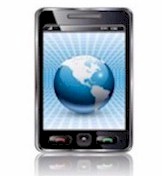|
|
DSC Tech Library
Computer Telephony Integration
 This section of our technical library presents information and documentation relating to CTI Computer Telephony Integration software and products.
Computer Telephony Integration CTI software is a rich set of phone software library routines that enable application programs to control your phone system.
This comprehensive CTI software lets you increase employee productivity, enhance customer service and reduce costs by combining the capabilities of our PACER phone system with the custom functionality of your Windows, Unix or Web applications.
Data collected by your phone ACD (Automatic Call Distribution) or IVR (Interactive Voice Response) systems can be passed to your existing PC, Unix or Web applications through our phone software.
The PACER predictive dialer can automatically call your customers and pass only connected calls to your agents. With our computer telephony software, your telephone and computer work together to provide cost-saving benefits.
This section of our technical library presents information and documentation relating to CTI Computer Telephony Integration software and products.
Computer Telephony Integration CTI software is a rich set of phone software library routines that enable application programs to control your phone system.
This comprehensive CTI software lets you increase employee productivity, enhance customer service and reduce costs by combining the capabilities of our PACER phone system with the custom functionality of your Windows, Unix or Web applications.
Data collected by your phone ACD (Automatic Call Distribution) or IVR (Interactive Voice Response) systems can be passed to your existing PC, Unix or Web applications through our phone software.
The PACER predictive dialer can automatically call your customers and pass only connected calls to your agents. With our computer telephony software, your telephone and computer work together to provide cost-saving benefits.
Hybrid telephony is getting through
Resellers report fast-rising sales of IP and hybrid solutions
Ben Tudor, Computer Reseller News 12 Sep 2004
European telephony resellers have experienced higher than expected sales of hybrid and IP telephony systems, according to a study by research firm Canalys.
The analyst's first quarterly Reseller Panel questioned 150 VARs across EMEA, and found that 87 per cent of respondents reported stable or growing revenue during the second quarter of this year.
Fewer than 15 per cent said their sales had declined, and 40 per cent reported better than 10 per cent growth during the quarter. Hybrid systems scored particularly well.
"Hybrids provide a migration strategy, so customers do not have to forklift out their old equipment," said Matthew Ball, research analyst at Canalys. "Vendors such as Nortel, Avaya and Alcatel are doing well across EMEA because they offer hybrid solutions."
HP ProCurve was also praised by resellers, as were Panasonic and Ericsson.
Resellers also responded well to IP telephony, with 80 per cent calling the technology "secure and reliable".
However, a third of respondents felt that there was still confusion in the market about what Session Initiation Protocol (SIP) was and what it could do.
Chris Barrow, business convergence manager at Avaya, said: "Many customer don't have a clear use for SIP at the moment. It's just a box they need to tick."
He admitted the slow pace of development among vendors was contributing to VARs' suspicions.
But he added: "With our SIP implementation we have been able to extend the 16 standard features to 25, and implement them in non-Avaya endpoints."
Richard Vialle, Ericsson's European manager for channel operations and development, said he understood why people were uneasy about SIP.
"The confusion around SIP is related to H.323. It was the first standard for [IP telephony], but was badly implemented by several vendors," he said.
"The positive thing about SIP is that it's a much better protocol. In mobility, one of our core areas, it's also a much more widely adopted standard."
ben_tudor@vnu.co.uk
|


 This section of our technical library presents information and documentation relating to CTI Computer Telephony Integration software and products.
Computer Telephony Integration CTI software is a rich set of phone software library routines that enable application programs to control your phone system.
This comprehensive CTI software lets you increase employee productivity, enhance customer service and reduce costs by combining the capabilities of our PACER phone system with the custom functionality of your Windows, Unix or Web applications.
Data collected by your phone ACD (Automatic Call Distribution) or IVR (Interactive Voice Response) systems can be passed to your existing PC, Unix or Web applications through our phone software.
The PACER predictive dialer can automatically call your customers and pass only connected calls to your agents. With our computer telephony software, your telephone and computer work together to provide cost-saving benefits.
This section of our technical library presents information and documentation relating to CTI Computer Telephony Integration software and products.
Computer Telephony Integration CTI software is a rich set of phone software library routines that enable application programs to control your phone system.
This comprehensive CTI software lets you increase employee productivity, enhance customer service and reduce costs by combining the capabilities of our PACER phone system with the custom functionality of your Windows, Unix or Web applications.
Data collected by your phone ACD (Automatic Call Distribution) or IVR (Interactive Voice Response) systems can be passed to your existing PC, Unix or Web applications through our phone software.
The PACER predictive dialer can automatically call your customers and pass only connected calls to your agents. With our computer telephony software, your telephone and computer work together to provide cost-saving benefits.